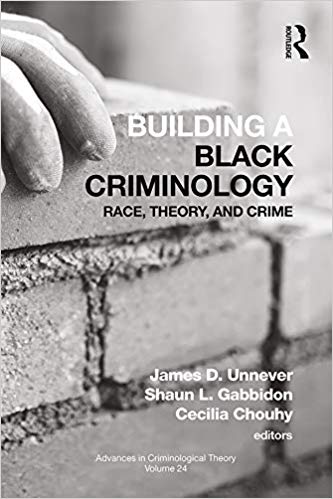In light of the Black Lives Matter movement and protests in many cities, race plays an ever more salient role in crime and justice. Within theoretical criminology, however, race has oddly remained on the periphery. It is often introduced as a control variable in tests of theories and is rarely incorporated as a central construct in mainstream paradigms (e.g., control, social learning, and strain theories). When race is discussed, the standard approach is to embrace the racial invariance thesis, which argues that any racial differences in crime are due to African Americans being exposed to the same criminogenic risk factors as are Whites, just more of them. An alternative perspective has emerged that seeks to identify the unique, racially specific conditions that only Blacks experience. Within the United States, these conditions are rooted in the historical racial oppression experienced by African Americans, whose contemporary legacy includes concentrated disadvantage in segregated communities, racial socialization by parents, experiences with and perceptions of racial discrimination, and disproportionate involvement in and unjust treatment by the criminal justice system.
Importantly, racial invariance and race specificity are not mutually exclusive perspectives. Evidence exists that Blacks and Whites commit crimes for both the same reasons (invariance) and for different reasons (race-specific). A full understanding of race and crime thus must involve demarcating both the general and specific causes of crime, the latter embedded in what it means to be "Black" in the United States. This volume seeks to explore these theoretical issues in a depth and breadth that is not common under one cover. Again, given the salience of race and crime, this volume should be of interest to a wide range of criminologists and have the potential to be used in graduate seminars and upper-level undergraduate courses.
چکیده فارسی
با توجه به جنبش Black Lives Matter و اعتراضات در بسیاری از شهرها، نژاد نقش برجستهتری در جنایت و عدالت بازی میکند. با این حال، در جرم شناسی نظری، نژاد به طرز عجیبی در حاشیه باقی مانده است. اغلب بهعنوان متغیر کنترلی در آزمونهای نظریهها معرفی میشود و به ندرت به عنوان یک ساختار مرکزی در پارادایمهای جریان اصلی (مانند کنترل، یادگیری اجتماعی و نظریههای فشار) گنجانده میشود. هنگامی که نژاد مورد بحث قرار می گیرد، رویکرد استاندارد پذیرش تز تغییر ناپذیری نژادی است، که استدلال می کند هر گونه تفاوت نژادی در جرم و جنایت به این دلیل است که آمریکایی های آفریقایی تبار در معرض همان عوامل خطر جرم زا هستند که سفیدپوستان هستند، فقط تعداد بیشتری از آنها. یک دیدگاه جایگزین پدید آمده است که به دنبال شناسایی شرایط منحصر به فرد و نژادی خاص است که فقط سیاه پوستان آن را تجربه می کنند. در داخل ایالات متحده، این شرایط ریشه در ستم نژادی تاریخی تجربه شده توسط آمریکایی های آفریقایی تبار دارد، که میراث معاصر آن شامل آسیب های متمرکز در جوامع جدا شده، اجتماعی شدن نژادی توسط والدین، تجربیات و درک تبعیض نژادی، و دخالت نامتناسب در و رفتار ناعادلانه توسط سیستم عدالت کیفری.
نکته مهم این است که تغییر ناپذیری نژادی و ویژگی نژادی دیدگاههای منحصر به فرد متقابل نیستند. شواهدی وجود دارد که سیاهان و سفیدپوستان هم به دلایل یکسان (عدم تغییر) و هم به دلایل مختلف (مخصوص نژاد) مرتکب جنایت می شوند. بنابراین، درک کامل نژاد و جنایت باید شامل مرزبندی علل عمومی و خاص جنایت باشد، که دومی در معنای "سیاه" بودن در ایالات متحده گنجانده شده است. این جلد به دنبال بررسی این موضوعات نظری در عمق و وسعتی است که در زیر یک جلد رایج نیست. باز هم، با توجه به برجستگی نژاد و جنایت، این جلد باید مورد توجه طیف وسیعی از جرم شناسان باشد و پتانسیل استفاده از آن در سمینارهای فارغ التحصیل و دوره های مقطع کارشناسی ارشد را داشته باشد.
ادامه ...
بستن ...
Ebook details:
عنوان: Building a Black Criminology, Volume 24: Race, Theory, and Crime (Advances in Criminological Theory)
نویسنده: James D. Unnever, Shaun L. Gabbidon, Cecilia Chouhy
ناشر: Routledge; 1 edition (November 6, 2018)
زبان: English
شابک: 1138353728, 978-1138353725
حجم: 3 Mb
فرمت: True Pdf
ادامه ...
بستن ...










